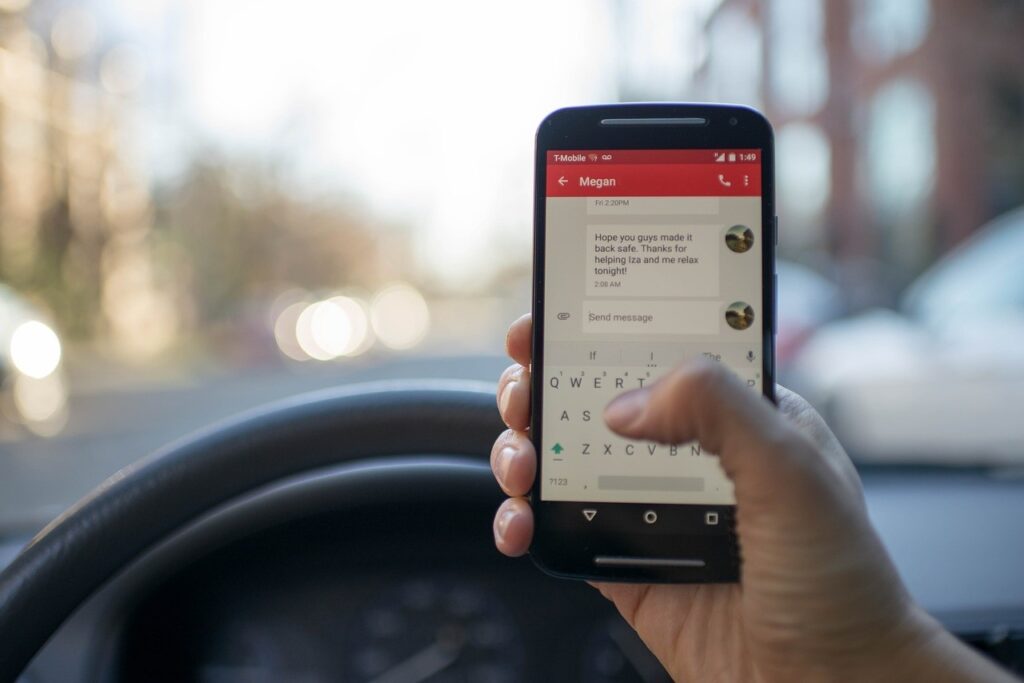
While many drivers will no doubt find the law inconvenient, law enforcement personnel believe it will significantly decrease the number of car accidents seen across the state. Because of the increasing number of situations in which people stopped at a red light are so busy looking at their phones they roll forward and strike a vehicle from the rear—or roll into an intersection causing a major accident—this bill will be all-encompassing. Drivers may not have a device in their hand, for any reason. Talking on speakerphone, or through an earphone or headset would still be allowed as methods of talking on your phone without posing a risk to others—although if you are caught dialing the phone with your fingers you would still be in trouble.
Alabama One of the Worst States for Distracted Driving
According to an article in The Outlook, Alabama is one of the worst states in the nation when it comes to driving while distracted (and driving while impaired). This article quotes statistics taken from National Highway Traffic Safety Administration data which places Alabama distracted driving accident fatalities at nearly twice the national average (11.6 deaths per 100,000)—second only to the state of Mississippi. Rounding out the top five states with the highest number of distracted driving and impaired driving traffic fatalities are South Carolina, New Mexico, and Wyoming. Experts believe that one reason for these high numbers in Alabama is the lack of legislation regarding handheld devices.
Is Hands-Free Safer?
Most of us would assume that hands-free devices are safer than handheld devices, but this assumption might not actually be correct. In fact, insurancejournal.com found that 80 percent of U.S. drivers believe using a hands-free device is safe, yet more than thirty studies have concluded that hands-free devices are really no safer than handheld devices. The reason for this is because our brains are distracted by a cell phone conversation no matter how those conversations are accomplished. David Teater, senior director of the Transportation Initiatives at the National Safety Council, states the problem succinctly: “The problem is, the brain does not truly multi-task…you can’t safely operate a vehicle and talk on the phone.”
Talking on a Cell Phone Causes Drivers to Overlook 50 Percent of What is Happening Around Them
The National Safety Council agrees about multi-tasking, noting that while the brain can quickly toggle between two tasks, the activity in the area of the brain that processes moving images decreases by up to one-third when talking or listening on a cell phone. The NSC also believes that one-fourth of all auto crashes involve a cell phone conversation, hand-held or otherwise. Anything that distracts a driver’s hands, eyes or mind from the task of driving is a distraction and if you are overlooking 50 percent of what is happening around you when talking on the phone—as the NSC suggests—then you are engaging in risky behavior.
Of course, protests abound regarding this data, with many claiming that talking on a hands-free device is no different than having a conversation with a passenger in your vehicle. The NSC says this simply isn’t true for two reasons: First, your passengers are also watching the road and will warn drivers about dangers they might not see, and secondly, drivers tend to drive a little more safely when they have a passenger watching their driving skills.
Cell Phone Use—Hand-held or Hands-free—is Considered as Dangerous as Intoxicated Driving
A 2006 University of Utah study tested adults who drove while intoxicated, revealing they were less dangerous than those who held a cell phone conversation while driving. Not only that, the same study showed more cell phone users crashed than drunk drivers and found little difference in driver performance between those drivers using hand-held phones and those using hands-free devices. It is speculated that drivers are lulled into a false sense of security when using a hands-free device, causing them to actually drive more dangerously than intoxicated drivers.
No laws have yet been passed in any state banning hands-free use of cell phones, and it remains to be seen whether Alabama will join the growing number of states banning all hand-held devices while driving.